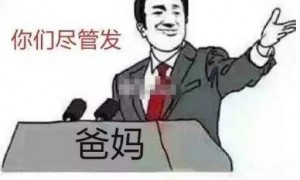美国股市从金融危机的深渊反弹,令数十位在2008年底和2009年初以极低价格获得股票和股票期权的公司高管收获甚丰。
The market carnage coincided with the year-end season when many companies make their equity grants to executives. The result was attractively low exercise prices for options. The depressed prices at the time also prompted some boards to grant larger numbers of options or shares than usual. Both factors boosted potential gains when stocks recovered.
股市低迷之际恰逢年底很多公司向高管授予股权的时段。结果就是,期权的行使价非常低。当时低迷的价格还促使一些公司董事会比正常情况授予了更多的期权和股票。这两个因素都在股市反弹时提振了可能的收益。
In all, more than 90% of CEOs of companies in the Standard & Poor's 500-stock index received stock or options between Oct. 1, 2008 -- shortly after the Lehman Brothers collapse -- and Sept. 30 of the following year. Collectively, that CEO equity has since risen more than $3 billion above original grant valuations, a Wall Street Journal analysis of S&P data shows.
总体来看,从2008年10月1日雷曼兄弟(Lehman Brothers)倒闭不久到次年9月30日,标准普尔500指数成份股公司中有90%以上的首席执行长获得了股票或期权。据《华尔街日报》对标普数据的分析显示,目前这些股权的总估值已经较当初授予时增加了逾30亿美元。
These are mostly paper gains. Many shares and options granted during the crisis carry time restrictions and can't yet be cashed out. Some grants also are linked to performance hurdles, and so might never be earned.
这些主要为帐面收益。危机时授予的很多股票和期权附带有时间限制,目前尚无法套现。一些股权的授予还与业绩要求挂钩,所以可能永远也无法套现。
Not every CEO shows gains on equity grants from the crisis period. Monsanto Co. CEO Hugh Grant received stock and options in October 2008 valued at $9.6 million. Since then, Monsanto shares have fallen 25%, so for now the options wouldn't be worth exercising. His stock grant, initially valued at up to $3.7 million, is worth about $1.4 million now.
并非所有的首席执行长在危机时期获得的股权都升值了。孟山都公司(Monsanto Co.)首席执行长格兰特(Hugh Grant)在2008年10月获得了价值960万美元的股票和期权。截至目前,该公司股票已经累计跌了25%,所以目前期权还不值得行使。他的股票最初估值最高可达370万美元,目前只有约140万美元。
The mostly surging values underscore a shift toward paying executives more with options and restricted shares, tying their fortunes to those of shareholders. Restricted shares are stock an executive gets free after sticking around for a set number of years and, in some cases, meeting performance tests.
股票大多升值,这凸显出更多地以期权和限制性股票的形式给高管付薪的趋势,这样高管的命运就与股东的命运联系在了一起。限制性股票是高管在任职一定年份后,有时是在满足了业绩考核后,免费获得的股票。
Stock options and restricted stock accounted for 53% of the stated value of pay for big-company CEOs in 2009, said Kevin Murphy of the University of Southern California's Marshall School of Business. That was up from 49% in 2005. Cash compensation declined during the recession. Brian Foley, a compensation consultant, said in many cases, executives are being rewarded for restoring share prices to 2006 levels. Large equity grants made at depressed share prices in late 2008 and early 2009 have become "lottery tickets" for some, he said.
南加州大学(University of Southern California)马歇尔商学院的墨菲(Kevin Murphy)说,股票期权和限制性股票占了2009年大公司首席执行长薪酬宣称价值的53%。这较2005年49%的比例有所上升。衰退期间现金薪酬减少。薪酬顾问弗利(Brian Foley)说,很多情况下,高管获得奖金是因为他们使公司股价恢复到了2006年的水平。他说,2008年底和2009年初以低价获得的大量股权对一些人来说成了“彩票”。
Shareholders of many firms have benefited, too. The cumulative value of S&P-500 companies has more than doubled from its low point during the financial crisis, to $12.3 trillion. In contrast to executives with options, however, shareholders had to put money at risk for two or 2 1/2 years to achieve these gains.
很多公司的股东也获益了。标准普尔500指数成份股公司的总市值较金融危机时期的低点增加了一倍以上,至12.3万亿美元。不过,与获得了期权的高管不同的是,股东必须拿资金冒险两年或两年半才能得到这样的收益。
Paying executives more heavily in equity rather than salary makes their compensation more variable and poses a challenge for directors who are trying to set a proper pay level. Compensation from equity grants obviously would have proved far lower had stocks not rallied sharply from their lows.
更多地以股权而不是工资的形式来给高管付薪,这使得他们的薪酬更加灵活,给试图设定一个适当薪酬水平的董事会带来了挑战。假如股市没有从低点大幅反弹,事实证明以股权形式发放的薪酬显然要缩水很多。







